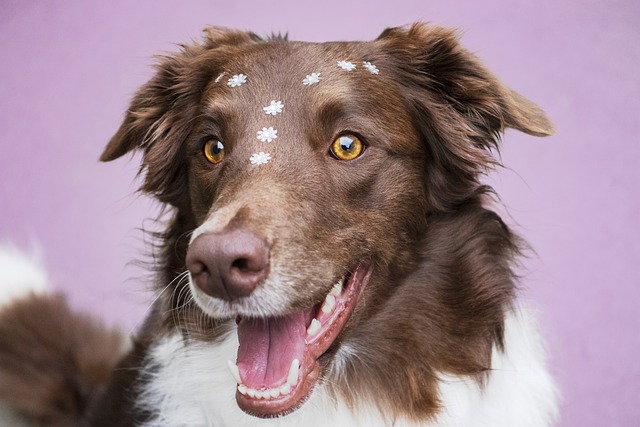
What is glaucoma in a dog?
You might notice your dog squinting more at mealtime or avoiding bright sunlight—these small changes could be early signs of a serious eye condition.
In the warm moments we spend with our dogs, what worries us the most is their physical discomfort. Cold, although a common illness in daily life, can also quietly fall on dogs. As the closest guardians of dogs, it is necessary for us to have a deep understanding of the symptoms that dogs may experience when they catch a cold, in order to detect them in a timely manner and provide them with careful care.
When dogs catch a cold, respiratory symptoms often appear first. They may sneeze frequently, one after another, and their small bodies tremble slightly under the impact of sneezing, making people feel heartbroken. This is because dogs' nasal cavities are stimulated by viruses or bacteria, attempting to expel these invaders through sneezing. At the same time, dogs may also experience symptoms of runny nose, which may initially be clear, but as the condition progresses, the nose may become thick and the color may gradually darken. Some dogs may also cough, with mild or severe coughing sounds, sometimes occasionally one or two dry coughs, and sometimes a series of intense coughs. These coughs not only make dogs feel uncomfortable, but may also affect their breathing, causing them to breathe rapidly and even produce wheezing sounds.
Dogs' eyes will also show significant changes. Dogs with a cold often have red and swollen eyes, which reveal fatigue and discomfort in their eyes. They may have an increase in eye droppings at the corners of their eyes. At first, the droppings may be transparent, but as the condition worsens, they become sticky and their color may turn yellow. Dogs also frequently scratch their eyes with their paws because the discomfort in their eyes makes them want to relieve it. If eye droppings are not cleaned in a timely manner, it may lead to eye infections, further exacerbating the condition of the dog.
The change in mental state is also an important signal for dogs to catch a cold. Once a lively and active dog catches a cold, it will become listless. They no longer run and play happily as usual, and show no interest in their favorite toys and games. I often find a quiet corner, curl up my body, lie down quietly, and my eyes are filled with weariness. Even if their owner calls them, their response will become sluggish and they will no longer run to their owner's side as quickly as before. This mental lethargy is a manifestation of dogs' physical struggle against illness, and they need more rest to recover their energy.

The changes in appetite cannot be ignored either. Dogs with a cold often lose their appetite and enthusiasm for their favorite foods. They may just symbolically lick their food, or simply not smell at all. This is because colds can affect dogs' sense of smell and taste, making their perception of food dull. Meanwhile, physical discomfort can also make dogs lose their appetite. Long term loss of appetite can lead to weight loss and physical weakness in dogs, further affecting their recovery.
In addition to the common symptoms mentioned above, some dogs may also experience fever when they catch a cold. Touching a dog's nose with your hand will result in the originally moist and cold nose becoming dry and hot. When measuring the body temperature of a dog, it will be found that the temperature is higher than the normal range (the normal body temperature of a dog is generally between 37.5 ℃ and 38.5 ℃). Fever can make dogs feel physically weak, more lethargic, and in severe cases, may even cause symptoms such as seizures.
When we notice these cold symptoms in dogs, we must not take them lightly. Take your dog to a veterinarian in a timely manner and have a professional doctor diagnose and treat it. During the process of waiting for medical treatment, we can provide dogs with a warm and quiet resting environment, provide them with sufficient clean drinking water, and let them rest well. Dogs are our most loyal companions in life, giving us endless love and companionship. When they get sick, we should take care of them with the same love and care. Every symptom is a distress signal sent by a dog to us, and we need to interpret it with our hearts and respond with actions. Let us build a healthy defense line for dogs with love and accompany them through every healthy and happy day. Because their health is our greatest happiness.

You might notice your dog squinting more at mealtime or avoiding bright sunlight—these small changes could be early signs of a serious eye condition.

Let’s set the scene: It’s a sweltering Phoenix afternoon—105°F outside—and you rushed your 2-year-old Lab mix, Cooper, on a quick walk to “get it over with.”

Let’s get real: You’re in your Miami apartment, watching your 3-year-old Corgi, Loki, struggle to climb the stairs to your second-floor unit.

Many dog owners brush off occasional scratching as just “dog behavior,” but persistent itching often signals something more—like a food allergy.

You might first notice your dog scratching more than usual—chewing at their paws until the fur looks thin, or rubbing their face against the couch nonstop.

Let’s be real: You’re standing in your Chicago apartment, watching your 3-year-old Beagle, Max, huff and puff just to climb onto the couch.